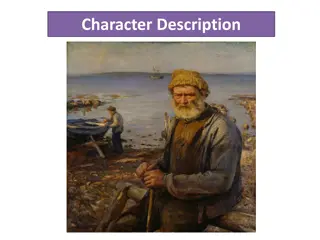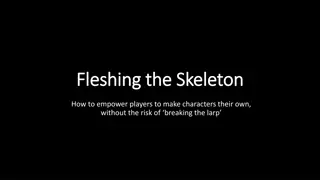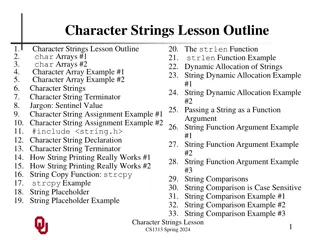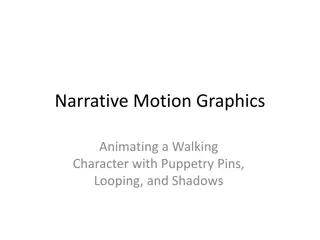
Understanding Characterization in Storytelling
Learn about the meaning of characterization, how it enhances storytelling, the types of characterization (direct and indirect), and why understanding indirect characterization can be challenging. Discover how writers develop characters through different methods and the importance of detailed characterization in making a story engaging.
Download Presentation

Please find below an Image/Link to download the presentation.
The content on the website is provided AS IS for your information and personal use only. It may not be sold, licensed, or shared on other websites without obtaining consent from the author. If you encounter any issues during the download, it is possible that the publisher has removed the file from their server.
You are allowed to download the files provided on this website for personal or commercial use, subject to the condition that they are used lawfully. All files are the property of their respective owners.
The content on the website is provided AS IS for your information and personal use only. It may not be sold, licensed, or shared on other websites without obtaining consent from the author.
E N D
Presentation Transcript
Characterization Who is that?
1. Characterization Meaning Characterization is the way writers develop characters in a story Two types Direct Characterization Indirect Characterization
Characterization How does detailed characterization help make a story better? It seems to me that detailed characterization helps to make a story better because
2. Direct Characterization Meaning when the writer directly tells the reader what a character is like Example Sherlock Holmes is clever and resourceful. Dracula is an evil vampire.
3. Indirect Characterization Meaning When the writer gives the reader clues about the character by describing how the character acts and thinks. The writer allows the reader to decide how to view the character.
Direct vs Indirect Characterization Why do you think it might be harder to understand indirect characterization than direct characterization? It seems to me that it might be harder to understand indirect characterization than direct characterization because
We can learn about a character in different ways. by what the character does by what a character says by what a character thinks by what others say about a character






















